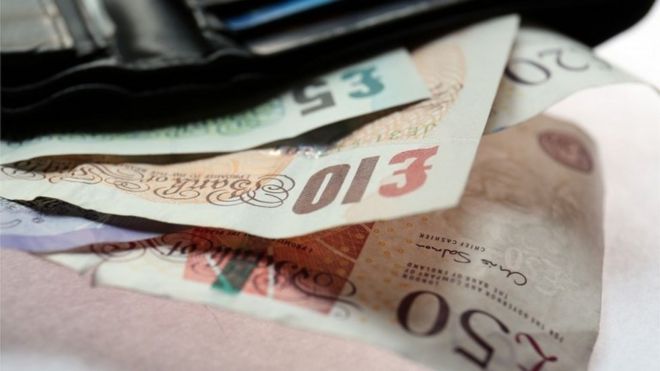What’s moved money, oil and shares in 2016?

Massive political events have made 2016 a standout year – what impact have these had on the pound, shares and the price of oil?
The pound
Sterling’s move this year has been dominated by the impact of the referendum.
Against the dollar it is down more than 15%.
Yes, there have been other factors at play. There always are many strands to what happens to financial market process. But the currency fell very sharply in the early hours of 24 June as it became clear which way the vote had gone.
Why a weaker currency? It’s partly about the Bank of England and its policies. The Bank’s governor Mark Carney had signalled strongly that he expected leaving the EU to lead to weaker economic growth.
The markets took that as meaning that there would be cuts in interest rates and perhaps a resumption of the Bank’s “quantitative easing” programme – buying financial assets with newly created money. The Bank duly met the market’s expectation in August.
Lower interest rates mean lower returns for investors in the currency where rates are reduced so its value tends to fall. QE has the same effect, partly because it also tends to drive down interest rates across the economy.
The decline against the dollar also reflects expectations about the US Central Bank moving in the opposite direction.
All year financial markets have been wondering when will the Federal Reserve raise interest rates again – after last year’s move, the first since 2008 at the depths of the financial crisis.
The Fed did eventually take action in December.
The EU referendum has also created uncertainty about the outlook for the British economy, though the most pessimistic expectations about the immediate aftermath of a no vote have been proved wrong. The uncertainty may also have contributed to the decline in the value of sterling.
Top 100 company shares
It has certainly helped the London stock market that the British economy has continued to grow reasonably well this year.
But the fall in sterling was also an important factor supporting shares. It does make it easier for exporters to compete internationally.
For some, the biggest companies on the market there is another advantage. Many of them – miners and oil producers for example – earn a lot of revenue in foreign currency especially dollars.
The fall in sterling means that is worth more when converted into pounds, boosting both the profits and share price of the companies concerned.
So we had a strong gain, 14%, in the FTSE 100 share index. The less international 250 index – gained a more modest 3%.
Oil
The price of crude oil is now about double the low it reached in January. The market has been driven to a large extent by the rather laborious return to the stage of OPEC, group that includes most of the leading oil exporters.
Often in the past a fall in the price of oil led to an OPEC attempt to reverse the development by agreeing to cut production – though it’s another question how effectively the member countries would implement any such deal.
The fall that began in mid-2014 met no immediate response. Saudi Arabia, OPEC’s biggest player, was thought to welcome the pressure that falling prices put on shale oil producers in the United States.
The Saudis also wanted a bigger contribution from other OPEC countries, notably Iran. Eventually though, the response came.
In September the group agreed in principle to act and then in November a new production ceiling was agreed with some non-OPEC members agreeing to take part.
The result: oil prices are still around half the June 2014 level, but a lot healthier for oil exporters than there were a few months ago.
Gold, still golden?
The precious metal is ending the year with a price rise of about 9%.
But it was a lot higher mid-year – more than a third higher than at the start of 2016.
Earlier in the year, things in the US looked rather different.
Expectations of an interest rate rise receded and some even wondered if the Fed might join the European and Japanese move towards negative rates.
The prospect that investors might have had to pay to keep money on deposit made gold look more attractive.
As the US economy gathered some strength later in the year that concern receded and the gold price turned down.
Far from going down, US rates were eventually increased.
Traditionally gold has been seen as an investment offering protection against inflation.
Since Donald Trump won the US Presidential election markets have thought there might be more inflation coming as he seeks to boost the economy with tax cuts and perhaps spending on infrastructure.
The gold price has moved up moderately in the last couple of weeks, though if it was a response to the election it was a delayed one.
In any event inflation in many developed economies is gradually picking up a little from very low levels.
So perhaps that suggests there is more room for gold to gain too if some investors think they want an anti-inflation hedge.
[Source:- BBC]